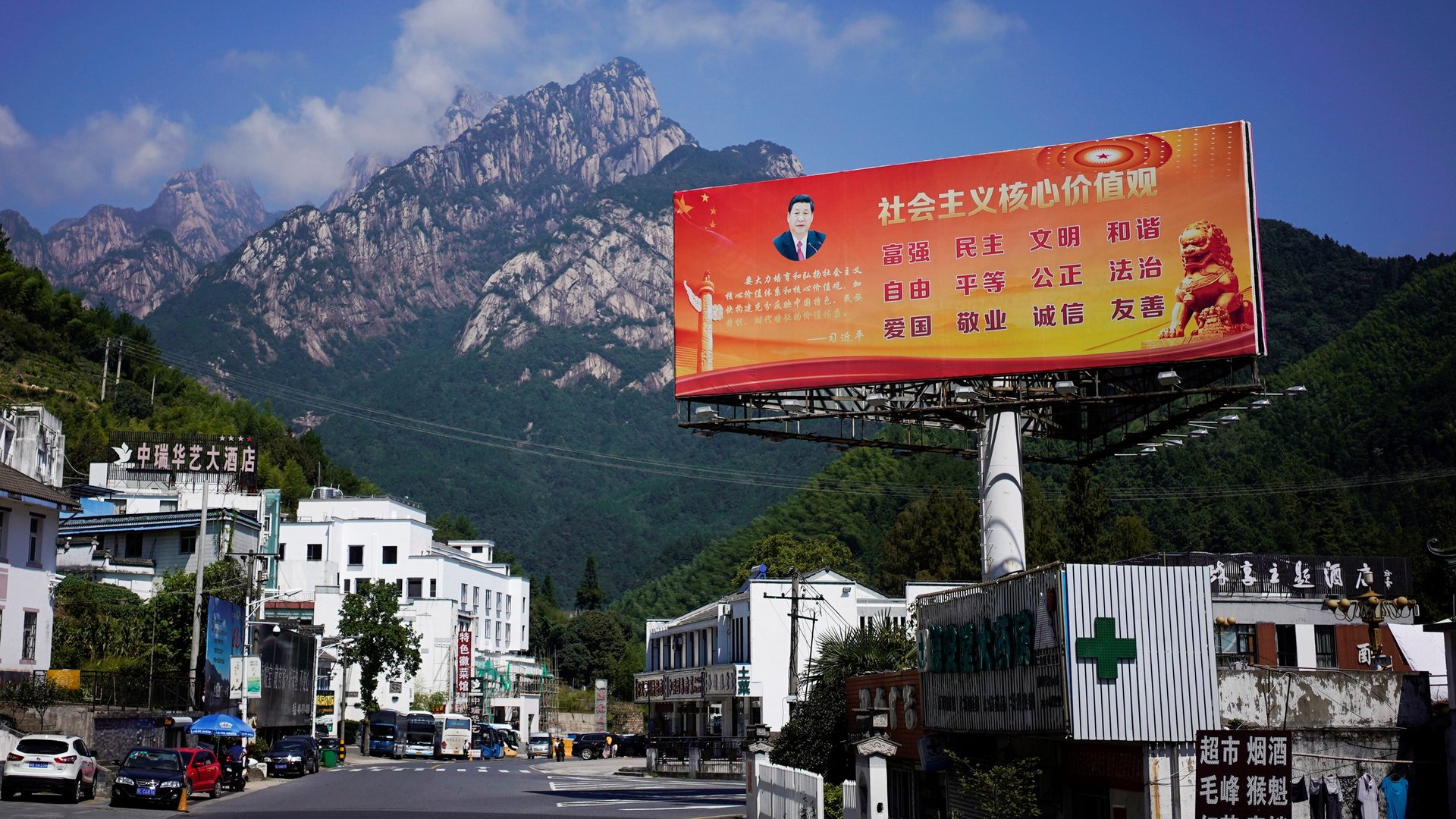Xi Jinping to China: “Any harm we inflict on nature will eventually return to haunt us”
In 2012, in a key party leadership speech, China vowed to work with international society to “actively respond” to climate change. Five years on, president Xi Jinping just told China that it is in the “driving seat” when it comes to preserving the planet for future generations.


In 2012, in a key party leadership speech, China vowed to work with international society to “actively respond” to climate change. Five years on, president Xi Jinping just told China that it is in the “driving seat” when it comes to preserving the planet for future generations.
Speaking at the opening session of the 19th Communist Party congress on Wednesday (Oct. 18), Xi turned early in his remarks to “ecological civilization.” He noted that China had made major efforts to reduce consumption and save resources, and that these steps were paying off domestically—and setting an example globally.
“Taking a driving seat in international cooperation to respond to climate change, China has become an important participant, contributor, and torchbearer in the global endeavor for ecological civilization,” said Xi, about 15 minutes into the start of a three-hour-plus speech known as a “work report.” (The remarks were accompanied by simultaneous English translation on the CGTN livestream.)
In many ways, Xi’s remarks on the environment at the leadership reshuffle meeting, which evaluates the previous five years and sets priorities for the next five years, were couched in more emotional terms than those used by then president Hu Jintao at the last party congress in 2012. While both leaders spoke of the importance of protecting the planet for future generations, Xi said (about 67 minutes in) that China must “cherish our environment as we cherish our own lives.”
“Any harm we inflict on nature will eventually return to haunt us… this is a reality we have to face,” Xi told the congress about an hour from the end, adding that China must “develop a new model of modernization with humans developing in harmony with nature.”
Xi’s remarks came as the country has increasingly focused on shifting from relying on fossil fuels to reduce its deadly air pollution and coal overcapacity problems at home. But China has also realized that these efforts allow it to command greater respect on the world stage, particularly as the US, under president Donald Trump, has made it clear it isn’t interested in playing a leadership role on safeguarding the environment.
In January, speaking at the Davos economic gathering in Switzerland, Xi defended the Paris climate accord and urged all signatories of the agreement to “stick to it rather than walking away from it.” Less than five months later, US president Donald Trump announced plans to withdraw from the agreement.
“We will get actively involved in global environmental governance and fulfill our emissions reductions,” Xi promised on Wednesday.
Under the Paris accord, China, the world’s biggest emitter of greenhouse gases, has pledged to cut its carbon emissions by 60% to 65% per unit of GDP by 2030, compared with 2005 levels, and to see an overall decline in emissions from 2030. China has been investing in renewable energy, though this is still a small share of its overall energy mix, and subsidizing the purchases of electric cars. In early September, China also said it planned to phase out fossil fuel-powered cars although no specific timeline has been revealed yet.